by Camelia Elias
1. Stop defending your reading style.
Here are 3 major statements about what kind of a card reader one is that make me scroll past them ever so fast when they come my way on the internet:
‘I’m an intuitive reader.’
‘I’m a tarot coach.’
‘I’m a fortuneteller.’
Statements like these reflect the shifting tastes and trends. What used to pass for ‘reading like a Devil’ in the 60s, what with a heavy focus on the cards as prompters for psychological self-inquiry, has now morphed into a method of bidding a lame devil welcome.
Alas, card reading has also fallen prey to the political correctness turn, making us say, enough of this already.
If the old Devil packed a punch, thrashing the hell out of your self-perception and pushing your know-thy self agenda to vertigo heights, the new Devil has been reduced to making more concrete predictions.
Not that the new Devil is really new, given the fact that all card reading comes from the venerable tradition of fortunetelling, anchored very firmly in predictions of the kind that split the world into black and white without any possibility of negotiation: Either you are about to meet the tall dark stranger, the bad old Devil himself, or you aren’t.
Such deliveries are completely devoid of intuition, and uninterested in any higher goals that will teach you how to become a better person.
Fair enough.
The shift from psychology to earthbound common sense is understandable, and one welcomes the swing of the pendulum back to pre-modern forms of narrative that have the visual interpretation of the poetics of the cards in focus, rather than spreading the ‘love and community’ idea pro-actively all over the place, emphasizing the personal and spiritual growth of the individual in unison with the entire universe.
But how exactly does one stop defending what one is doing, and get to where one simply states the matter of fact situation: I, a card reader?
Remember what Margaret Thatcher used to say: ‘Power is like being a lady. If you have to tell people you are one, you aren’t.’
If you have to tell people that you are of such and such a card reading orientation, while also squaring off against other people’s reading styles, then you will merely disclose insufficient confidence in your skills, and hence a lack of power.
We are, after all, dealing with the interpretative arts, not psychology, not theology, and not consultancy.
As soon as you stop defending your reading style, you will see how psychology and theology and consultancy will seek you out.
That’s the art: To read the cards in a disinterested way, and let the label of specificity come to you all by itself.
It may well be that you will do a brilliant job at intuitive readings – more power to you – and it may well be that you will discover that you’re an excellent psychotherapist – even more power to you – and it may also well be that you realize what a powerful business witch you are, being able to consult on everything between heaven and earth – but you have to remember that before you are all these labels, you read the cards.
That’s your starting point; the only starting point. You do that, keep a sharp eye on that point, and the Devil will love you.
2. Stop agonizing over the fact that you’d like to kill your father. Or mother.
The world of cartomancy, like any other world, is populated by self-appointed kings and queens. As history has shown, however, kings and queens have a way of losing their heads, even over small trifles.
What I said above, applies to the kings and queens of cards as well. If you have to tell people you are one, you really aren’t. So you’re quite safe from having to deal with your anxiety of influence.
I see how the up and coming smart card readers struggle with the foolish eagerness of having to prove themselves against these kings and queens of cards.
The fact that they are ready to kill a few of them gets them into a personal crisis, where they actually contemplate seeing a consecrated shrink – they are, after all, full of hatred and don’t know what to do about it.
They’re thinking that a shrink or a bad witch can help them vanquish their negative thoughts, either through the cognitive psychology approach of ‘change your attitude and you’ll be fine’ or through some cool guided meditation towards the actof self-impaling, where your anger will go ‘poof’ as soon as you get to stab the wax puppet made for that purpose.
But imagine this: every time you lay down three cards, a new narrative emerges, and this is quite free of what the kings and queens of the world may have to say about it.
While you pour your brains into it – gut feeling, intuition, and all the rest included – you forget for a while to check with the existing numerous introductions to the tarot, all exquisitely brilliant and unique, if you listen to the publishing houses’ clever marketing or read the long line of endorsements on the back covers.
You even forget that you must embody a specific label.
So, I would say, stick to that forgetfulness. Develop full amnesia, and read your cards by flinging all your five senses into it.
Remember rule number one: Use only your common sense. If you don’t think you have one, develop one.
The way to go about it is the same: Activate amnesia of all cultural ways and prescriptions of how you ought to read the cards, and start looking at the cards.
Yet remember also that looking at the cards, really looking at the cards, is harder than stating an opinion about the cards, but it can be done.
If you feel that an opinion is coming, even when it is based on some informed or educated guessing that will place you in an intimidating relation to your precursors, get your sword out of its scabbard and start decapitating.
That will do it. The Devil will love you.
3. Stop thinking that you can’t, and get on with the program.
I once stumbled over this line in a yoga journal, of all places, given the attribution: ‘If you think you can, you can; if you think you can’t, you’re right.’
This is a variation of an old adage from Virgil, attributed to Henry Ford who was quite the fascist. He was an inflexible, horrible man who even had a big poster of Hitler on the wall of his office.
Word has it that he used this line when he developed the T-model car. His PR-men suggested that perhaps other colors than black would be a good marketing strategy, but Ford was adamant: ‘you can have it any color you want, as long as it is black,’ and then he went on to demonstrate the power of suggestion in psychology: ‘whether you think you can or cannot, you’re probably right.’
Quite. The T-model stayed black and Ford got richer.
The point is that you cannot avoid being quite the fascist when you read the cards. If you have to deliver a message that’s truthful, the only way to do that is by making yourself odious.
Truth is never popular, as we all know, but if we have to choose between two evils which one do we go with? I’ll take the greater one anytime. I hold myself to what Oscar Wilde used to say about mainstream culture: ‘Everything popular is wrong’, and simply get on with the program.
In card reading, what you want to achieve is not popularity – we leave that to the old kings and queens eager to hold on to their thrones, even after their clothes have gone ragged after too much friction with the stone.
Rather, what you want to achieve is getting to the truth. You don’t sell the truth to the highest bidder. You sell it to the Devil.
The Devil will love you for it.
As a bonus for your effort on the 3 points here, you will find that you will have achieved the status of the bad witch. You will be able to check all 10 counts that Carolyn Elliott has gone through in her essay on how to recognize yourself as a bad witch.
You will also get a sense of what it means to be the dreamer of the ultimate cartomantic dream, rather than a mere dream character in your own interpretations of your cards. You will cleverly say no to trends, and yes to your own shadow.
You will do what you are good at, pumping up the iron in your blood, and wearing your heart on your naked body. The Devil will love you with an infinite love.
Go and get them.
***Note on the cards, all in my own collection:
Marseille Tarot, Carolus Zoya, 1790. Facsimile after the original in the private
collection of K. Frank Jensen. (featured image)
Facsimile of Sorcerer Fortunetelling Playing Cards made by K. Frank Jensen, after the original in his private collection.
Marseille Tarot, Jean Noblet, 1650, as reconstructed by Jean-Claude Flornoy.
Jacques Vieville Tarot, 1650, as reconstructed by Roxanne Flornoy.
Le Florentin, Paul-Emile Bécat for Philibert, Paris1955
About the Author:
 CAMELIA ELIAS, PhD, Dr. Phil., is a professor, writer, and cartomancer. Her research interests are in esoteric movements, occult, and folk practices of reading and producing spiritual texts. She blogs at Taroflexions, she is a columnist in cartomancy at Agora/Patheos (since July 22, 2015), and she is the author of a book on divination with the Marseille cards, Marseille Tarot: Towards the Art of Reading. A new book on principles of magic with cards is due to appear in August 2015.
CAMELIA ELIAS, PhD, Dr. Phil., is a professor, writer, and cartomancer. Her research interests are in esoteric movements, occult, and folk practices of reading and producing spiritual texts. She blogs at Taroflexions, she is a columnist in cartomancy at Agora/Patheos (since July 22, 2015), and she is the author of a book on divination with the Marseille cards, Marseille Tarot: Towards the Art of Reading. A new book on principles of magic with cards is due to appear in August 2015.
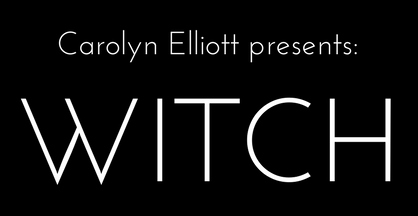
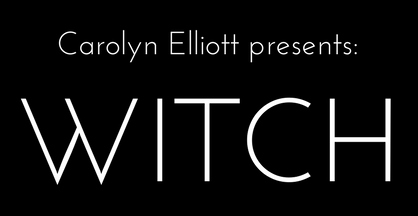
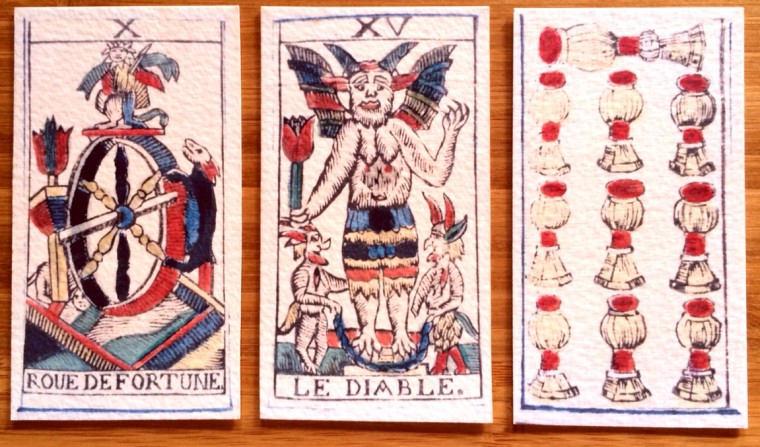

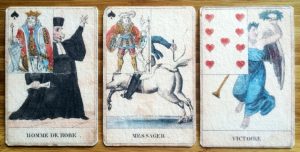

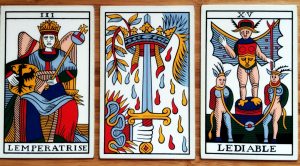






Show Comments (1)
médiums et tarologues. Voyance en ligne gratuite et rapide pour une consultation de voyance en direct ou en privé.
What’s up to every body, it’s my first visit of this blog;
this web site consists of amazing and actually good information in favor
of visitors.